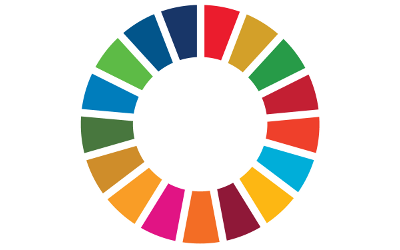You are here
- Home
- Open Research
- Helping with your open research
- The importance of open research or open science for achieving sustainable development goals
The importance of open research or open science for achieving sustainable development goals

By Professor Theo Papaioannou, Academic Lead for Open Research, Faculty of Arts and Social Sciences.
Open Research (OR) or Open Science (OS) is about openness in generating and disseminating scientific knowledge. Thus, it requires open access to peer reviewed publications, research data and metadata, software and hardware. OR or OS is being guided by FAIR (Findable, Accessible, Interoperable, Reusable) principles which allow for scientific knowledge and underpinning research data to be freely accessed, re-used, repurposed, and diffused to everyone immediately or as soon as possible regardless of race, gender, nationality, ethnicity, religion, income and wealth. In this sense, it might be said that OR or OS challenges traditional approaches to scientific research in two respects: first, how scientific research should be practiced and disseminated; second, who should access and benefit from scientific research.
It could be argued that in both respects, OR or OS is crucial for achieving sustainable development goals (SDGs) of the United Nations (UN) 2030 agenda. The SDGs are a set of 17 interrelated global goals accompanied with 169 targets. They were established in 2015 to address the most pressing global challenges of our time. Although we are more than halfway through to the 2030 deadline, a recent report of the UN General Assembly Economic and Social Council (2024: 2) reveals that ‘…only 17 per cent of SDGs targets are on track to be achieved, nearly half are showing minimal or moderate progress, and progress on over third has stalled or even regressed’. The reasons for this sluggish performance include: the Covid-19 pandemic; the current geopolitical conflicts; and the impact of climate change.
Yet, it might be suggested that enabling more access to scientific knowledge and research data through OR or OS practices and infrastructures can promote innovation and accelerate achievement of several SDGs. For example, SDG 4 on inclusive and equitable education can be achieved faster through more open access and open data that can ensure free availability of research outputs and more open educational resources which can accelerate teaching and learning opportunities for all. SDG 9 on inclusive and sustainable innovation and industrialisation can be substantially advanced through more OR or OS practices and infrastructures which enable research data sharing and dynamic collaboration between industry, academia and policy. The free adoption of research findings and the reproducibility of data can accelerate capacity building for innovation. Progress with SDG 10 on reduction of inequality can be accelerated through more OR or OS that allows access to data and publications, removing barriers to knowledge of causes of inequality in different countries. Progress with achieving SDG 12 on responsible consumption and production also depends on more open access of research outputs and transparency of data. In addition, open education materials can offer better teaching opportunities across the globe to people who want to learn more responsible and sustainable consumer practices. Finally, achievement of SDG 16 on peace and justice but also progress with SDG 17 on partnerships can be accelerated fast through availability of more open access publications, transparency of data and interdisciplinary collaborations and partnerships.
In fact, almost all SDGs within the 2030 agenda for sustainable development require constant scientific data that should be free for people to use and reproduce without restrictions. In 2021, the UN Educational, Scientific and Cultural Organization (UNESCO) declared a global commitment towards OR or OS. According to UNESCO (2023: 15) ‘Open science has the potential to reduce disparities in science, technology and innovation advancing global goals and the human right to participate in and benefit from science and its advancements. It serves not only to amplify access to scientific knowledge by everyone for the benefit of science and society but also to promote opportunities for innovation and participation in the creation of scientific knowledge and sharing of benefits’. UNESCO’s OR or OS initiatives are very much designed to enable achievement of SDGs.
However, even if some of the 17 SDGs get achieved or rethought by 2030, the case for OR or OS will remain strong and relevant. This is because open research as such is not an end in itself but a powerful means to achieve global public good.